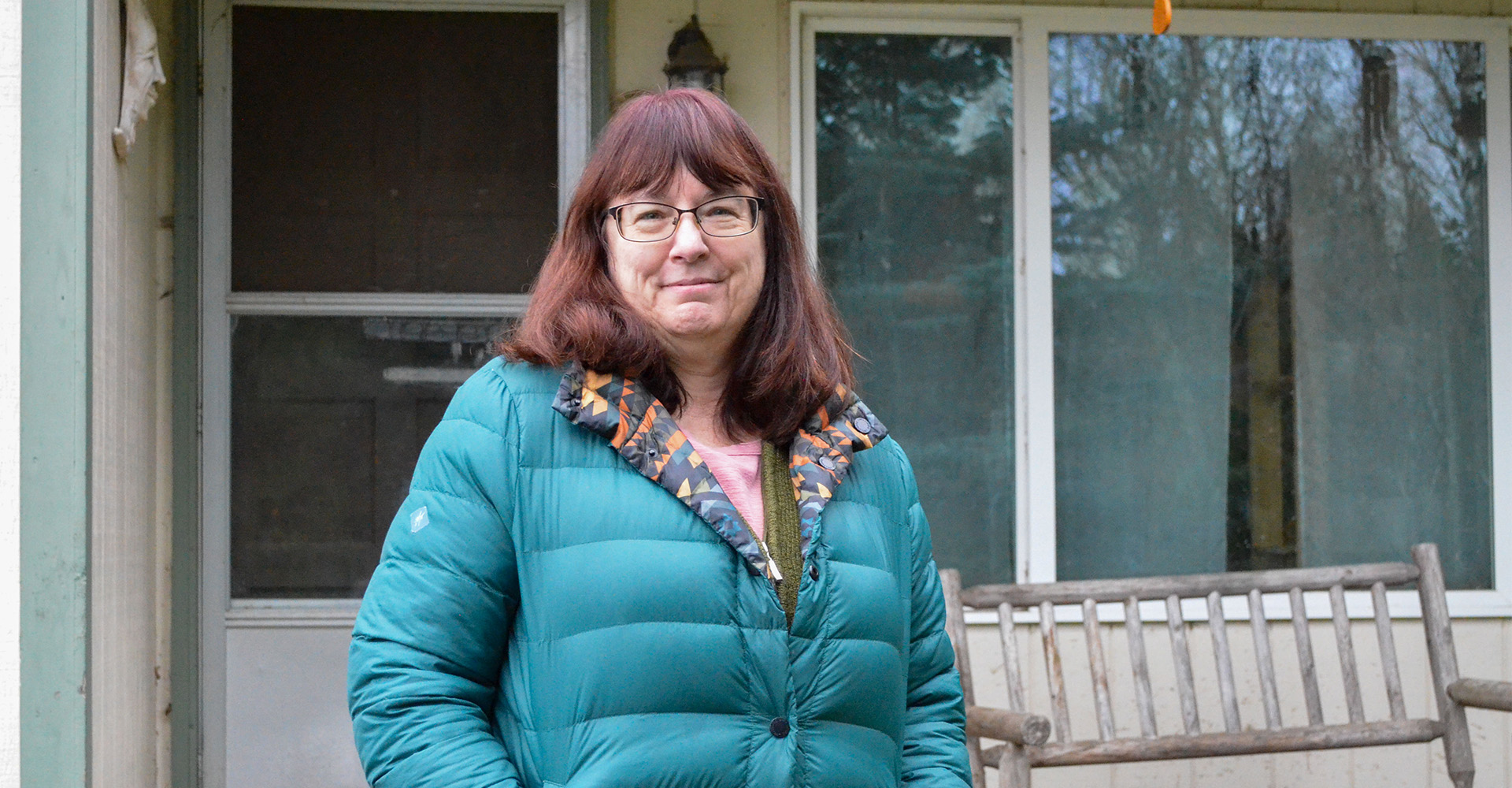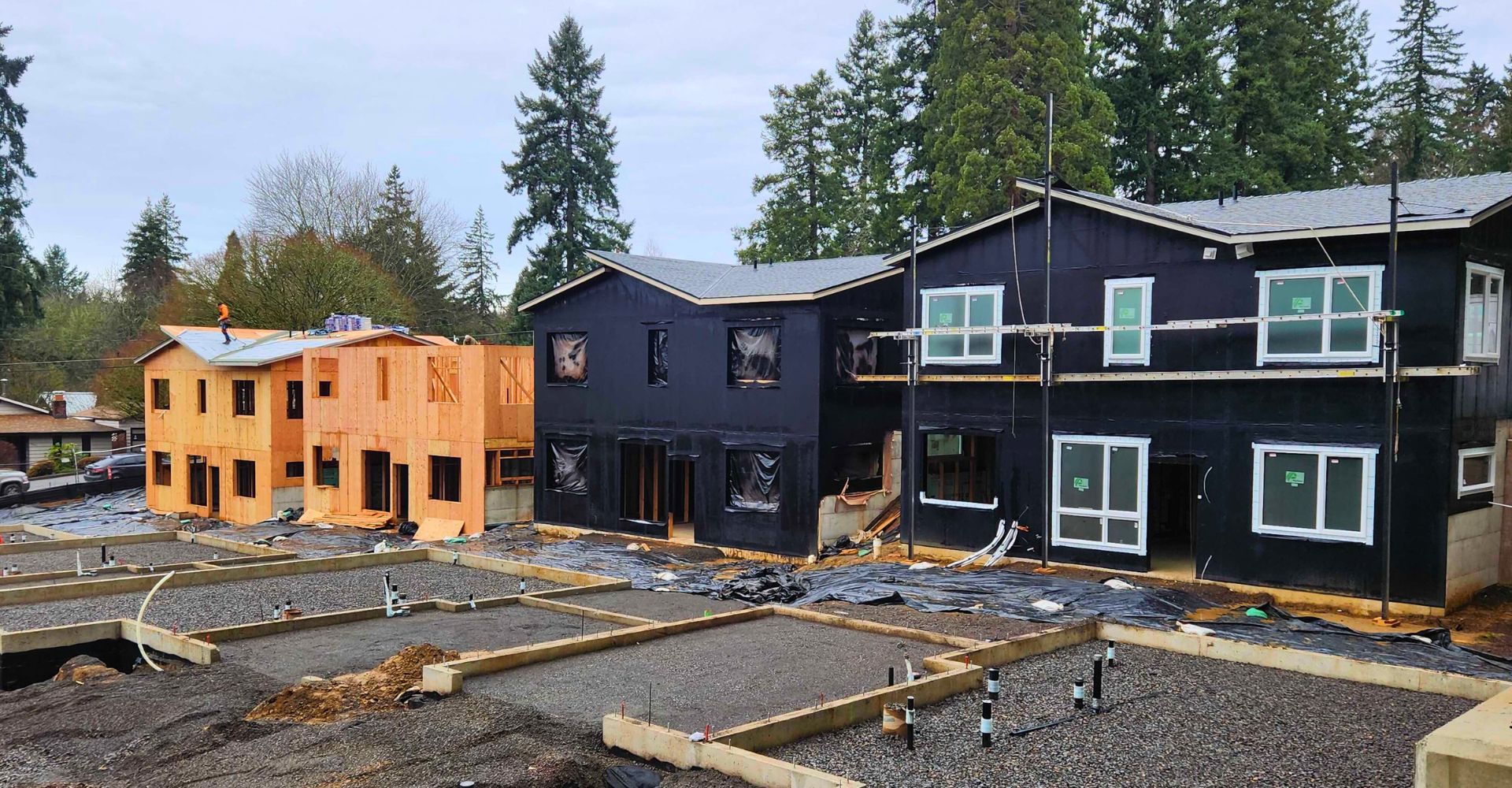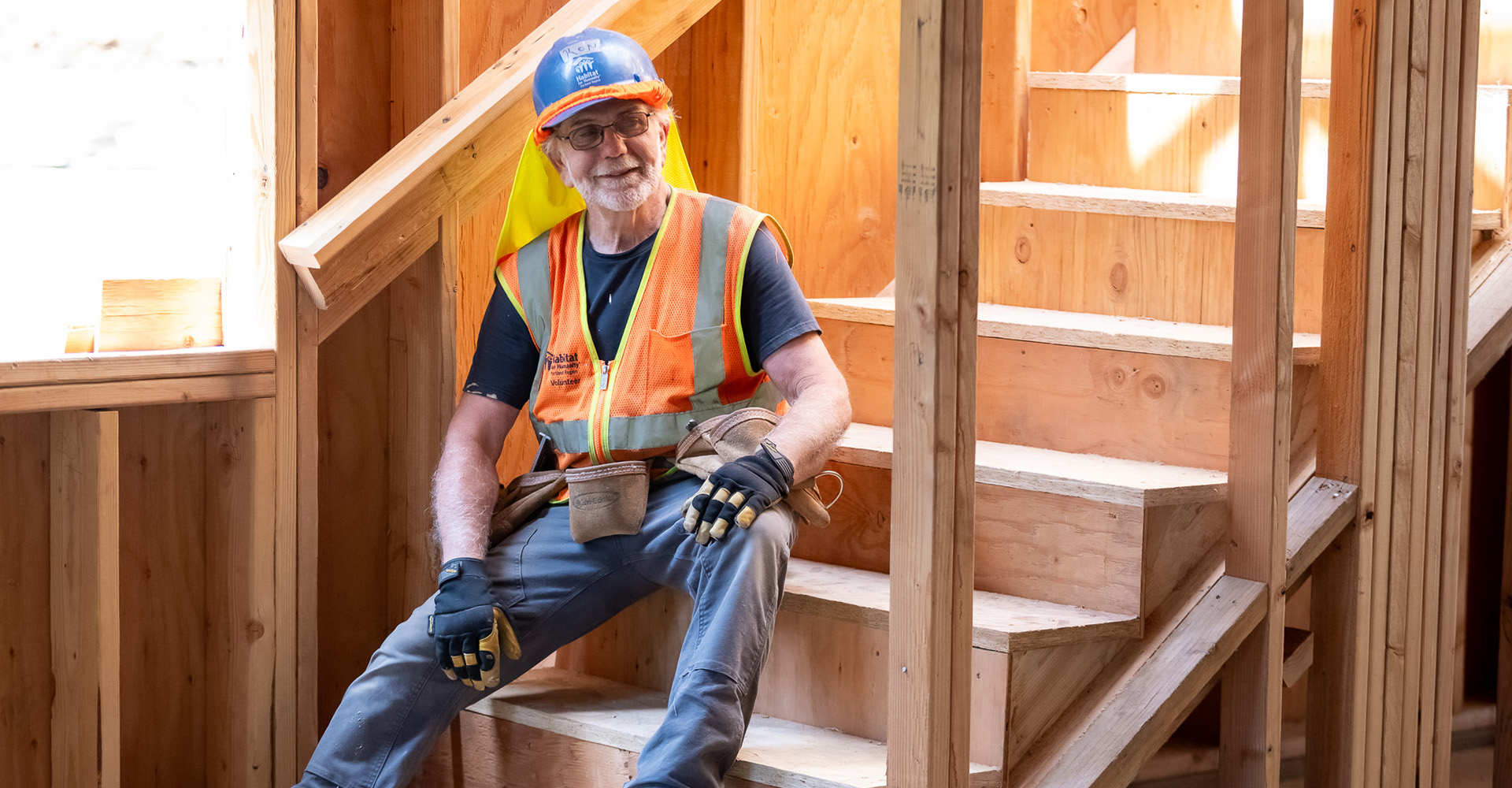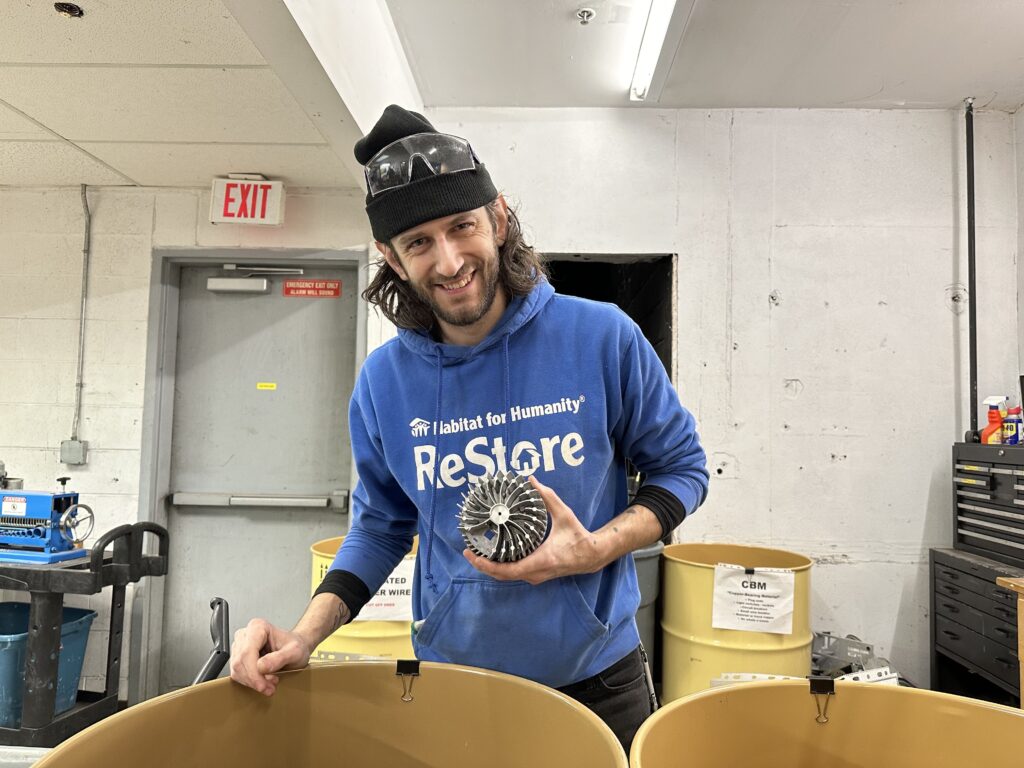
One man’s trash is another man’s treasure, so the saying goes. That’s certainly the case at the Habitat for Humanity Portland Region ReStores, where the metal recycling program is turning donated metal into a valuable resource for affordable homeownership.
Here’s how it works: The ReStores accept donations of quality, new and used items — including building materials and home goods– the sale of which supports Habitat for Humanity Portland Region. Items containing metal that are not up to standard for resale are disassembled by volunteers so that Habitat can recycle the materials. When the contents are sorted according to the metal categories, the value of the recycled metal adds up.
Joseph Drushal, who manages the program, said that metal recycling has been a part of the ReStore’s culture for as long as the ReStore has existed. In the past, however, the program was entirely volunteer-run, and each of the stores was doing something different.
That changed last year when Joseph became the official ReStore salvage and recycling manager, providing unified oversight. He hopes to eventually expand the program beyond just scrap metals to include small appliance repair, electronics recycling, and cardboard baling.
“What’s interesting is that you wouldn’t think some of this stuff is valuable, but when you fill this barrel, you can sometimes cash it in for like $500,” he said. “All we had to do was throw it in here.”
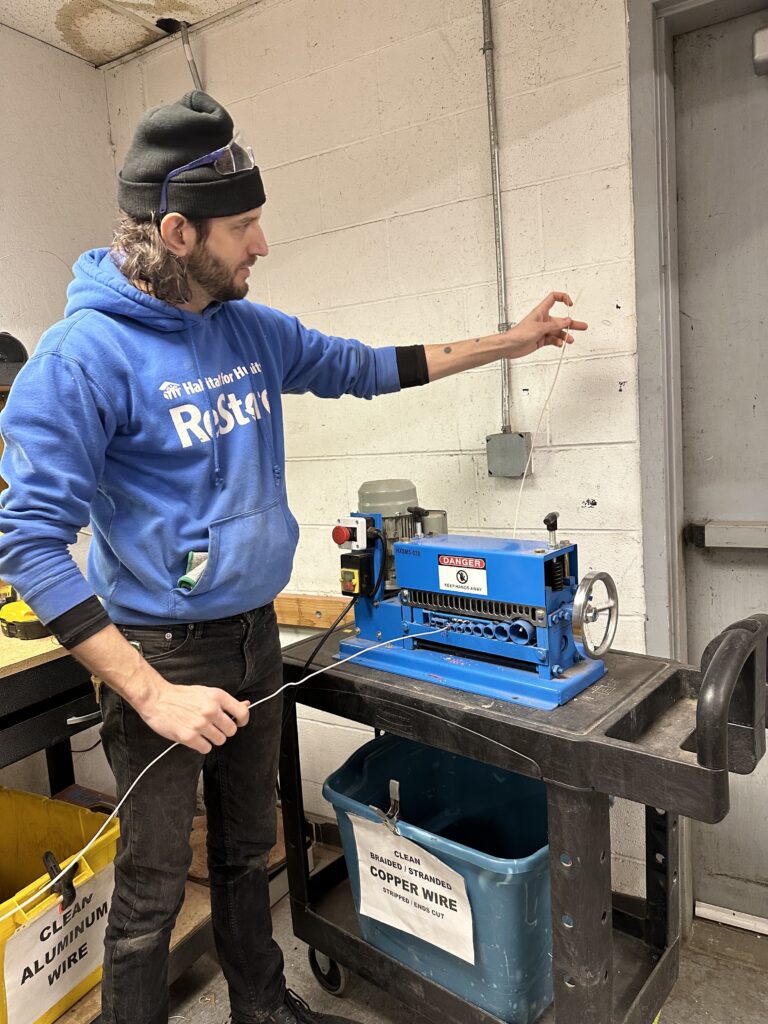
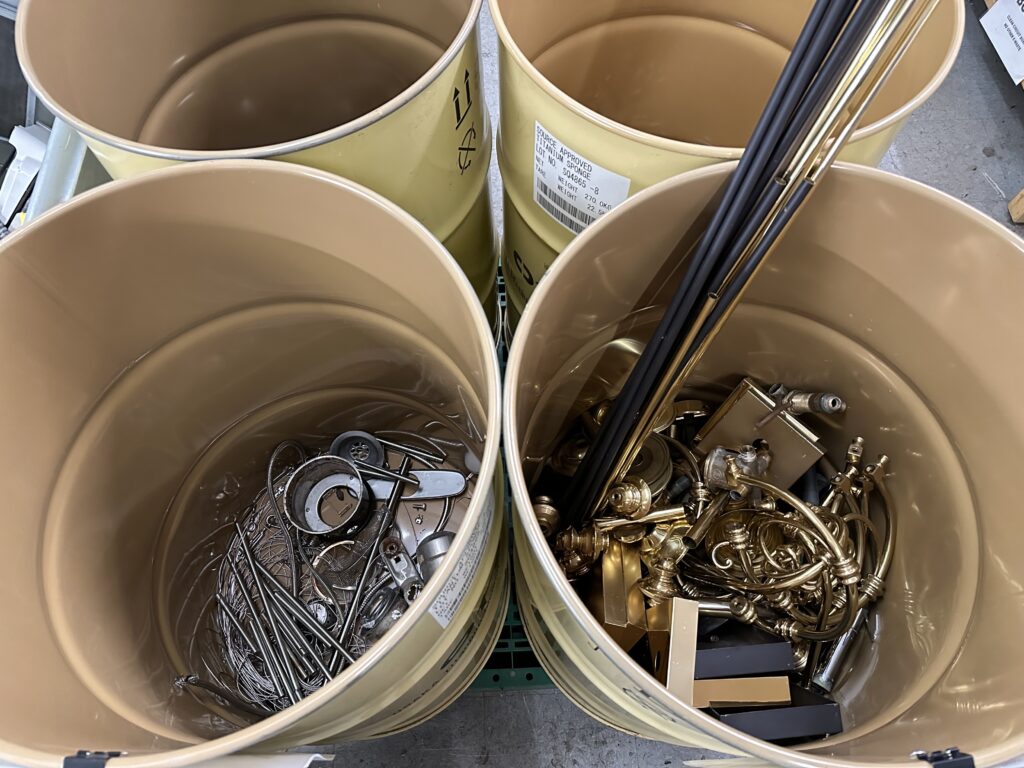
You probably have all types of household items lying around that are worth more than you might expect.
A faucet, for example, could have five different metals inside of it: there’s copper tubing attached to brass fittings, and the neck of the faucet might be zinc or brass. When you clean and separate all these individual metals, they can be sold by the pound, which adds up quickly!
“Our revenue depends on how well we sort,” Joseph said. “We have broken $60,000 annually for the last couple of years, and we have a goal to stretch that to $80,000 and possibly more.”
Those funds go directly to support Habitat’s work building and repairing homes across the Portland region. Habitat Portland Region is on track to build and repair more than 100 homes this year alone.
Joseph works with volunteers to break down and sort the items. Some volunteers only work on one thing; one volunteer comes in and takes apart ceiling fans to extract several valuable metals, like electric motors, copper wire, and die cast aluminum, zinc, and brass hardware.
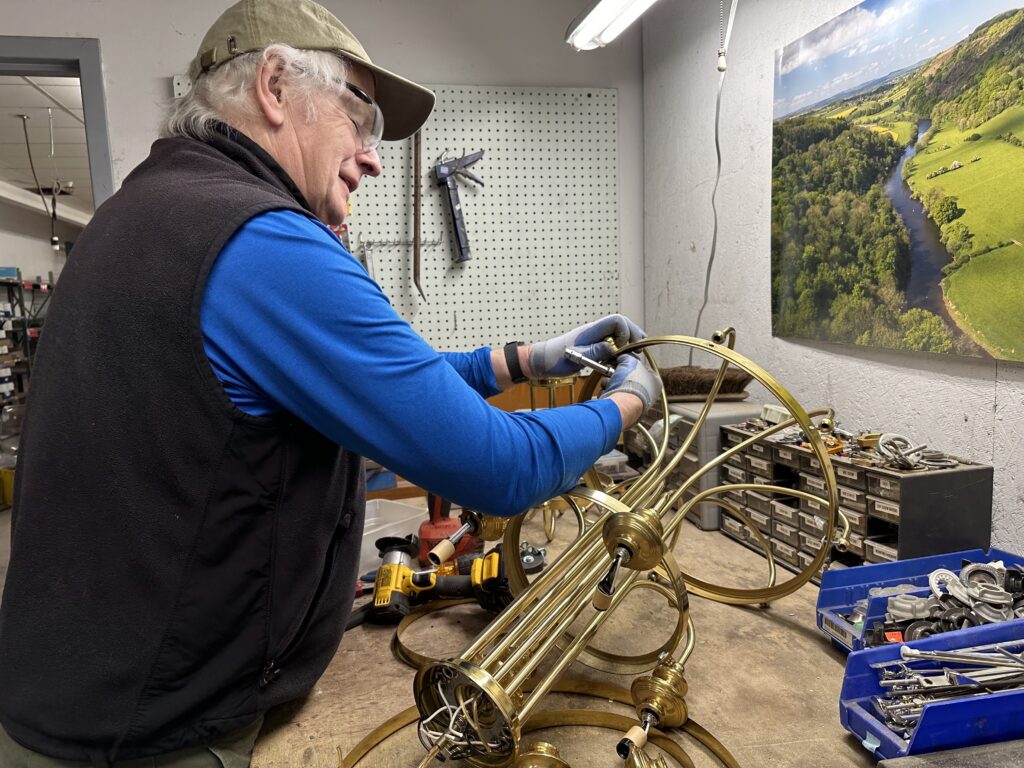
“Some people really like doing this because it’s very repetitive, it’s a little therapeutic,” Joseph said. “It always feels good being able to pull out the copper and think, ‘I did that!’”
So, in addition to donating your new or gently used home goods and furniture, don’t forget those recyclable items, too. There are plenty of items that would work: think of small appliances: a toaster, microwave, light fixtures, plumbing, power tools, fans, or a vacuum cleaner. Donations can be dropped off at any ReStore.
Joseph said he is always looking for more volunteers interested in helping with this kind of work. If you’re someone who likes tinkering and hands-on work, check out the opportunities on our volunteer page.
“Deconstruction is just as fun as construction,” Joseph said, “if not more fun.”
